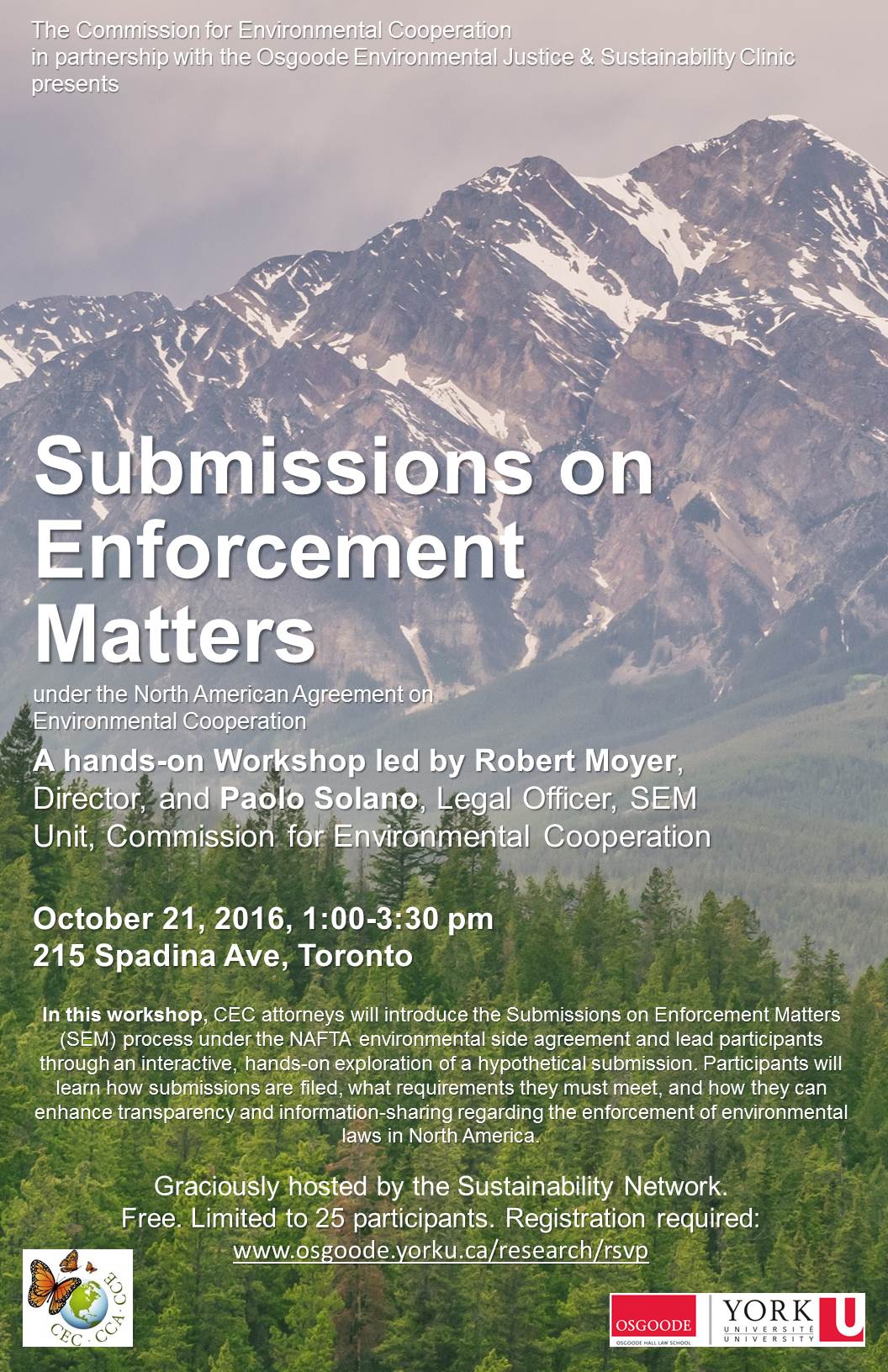215 Spadina Ave #128
Toronto, ON M5T 2C7
Canada
The Commission for Environmental Cooperation, in partnership with the Osgoode Environmental Justice and Sustainability Clinic, presents:
SUBMISSIONS ON ENFORCEMENT MATTERS
under the North American Agreement on Environmental Cooperation
A hands-on Workshop led by Robert Moyer, Director, and Paolo Solano, Legal Officer, SEM Unit, Commission for Environmental Cooperation
October 21, 2016, 1:00-3:30 pm
215 Spadina Ave, Toronto
In this workshop, CEC attorneys will introduce the Submissions on Enforcement Matters (SEM) process under the NAFTA environmental side agreement and lead participants through an interactive, hands-on exploration of a hypothetical submission. Participants will learn how submissions are filed, what requirements they must meet, and how they can enhance transparency and information-sharing regarding the enforcement of environmental laws in North America.
The SEM process was established by the North American Agreement on Environmental Cooperation (the environmental side agreement to NAFTA). It is administered by the Commission for Environmental Cooperation (CEC). This unique process allows any individual or organization resident in North America to assert that a Party to the agreement is not effectively enforcing its environmental laws. This non-adversarial process can result in a written response from the relevant country and in the CEC’s preparation of a factual record—a detailed and objective account of the history of the environmental enforcement issue, the country’s legal obligations and its actions to fulfill those obligations. The goal of the SEM process is to provide the Parties and the public with timely and relevant information about environmental law enforcement.
Graciously hosted by the Sustainability Network.
Free. Limited to 25 participants. Registration required:
www.osgoode.yorku.ca/research/rsvp
14 spots are reserved for students in the Osgoode EJS Clinical Program and other Osgoode students. The remaining 9 spots are open to other interested students, lawyers, environmental activists, community organizers or any other interested members of the public on a first come, first served basis.


